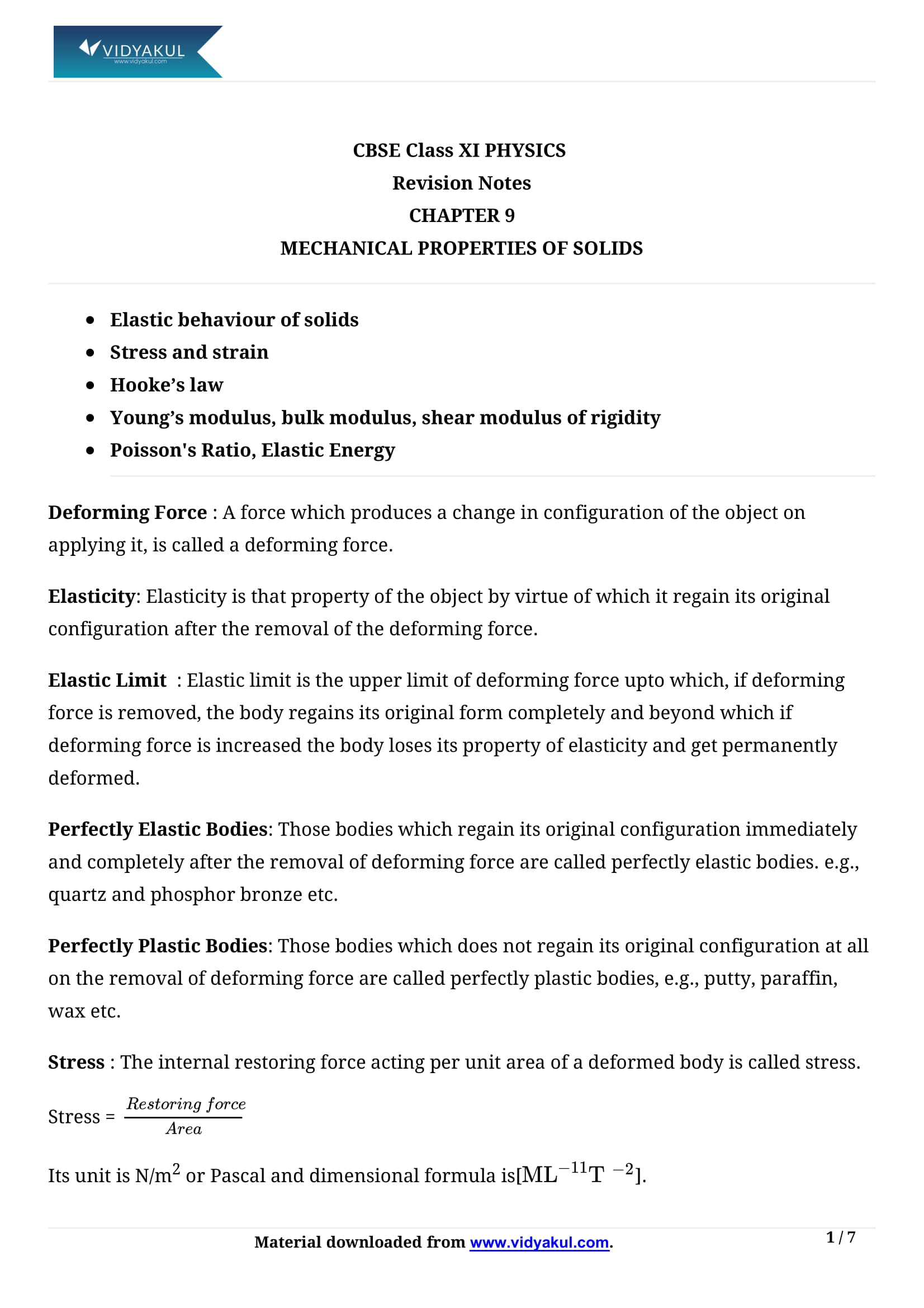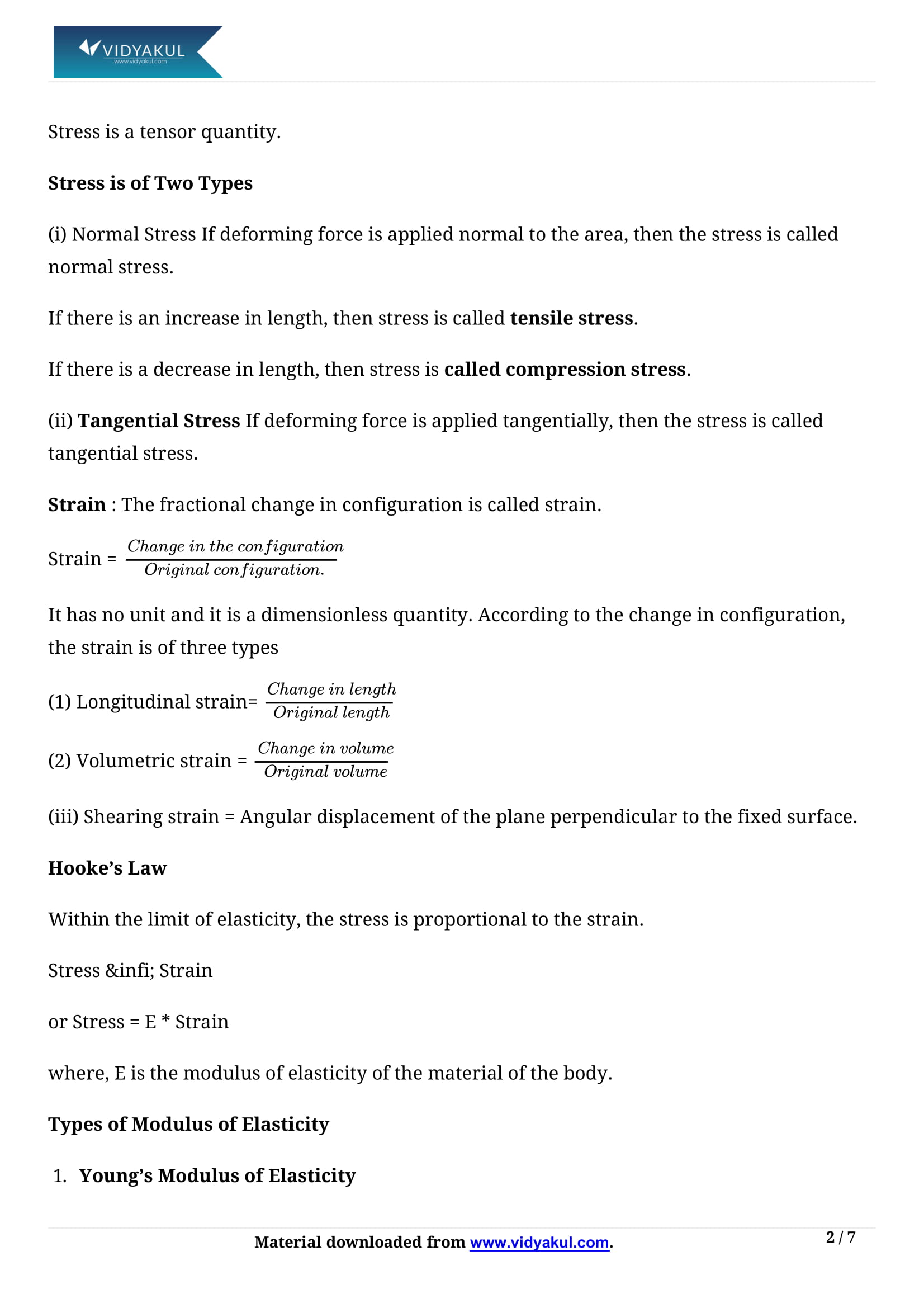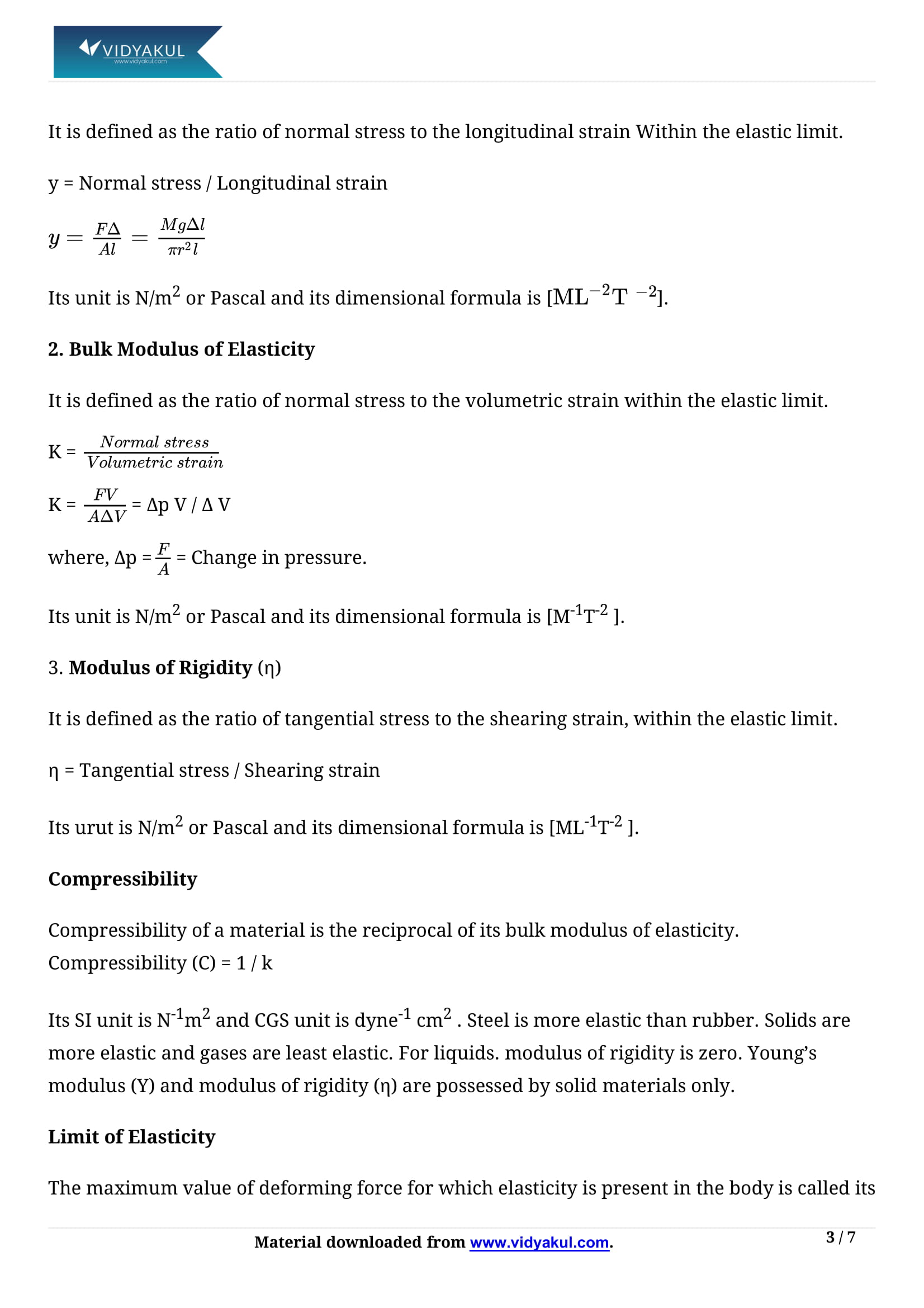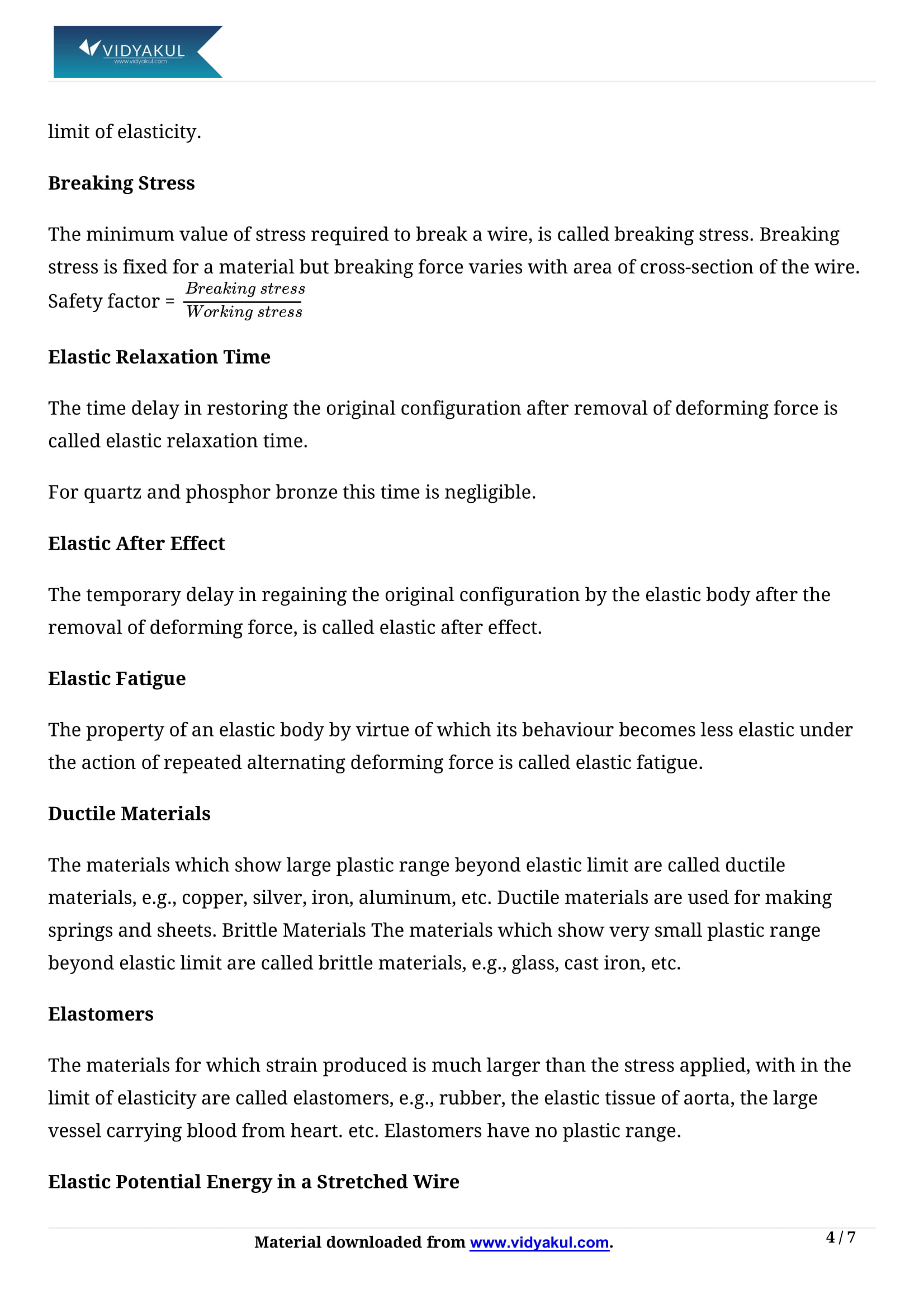Class 11 Physics Chapter 9 Mechanical Properties of Solids Notes

Chapter 9 Mechanical Properties of Solids
This chapter deals with the mechanical properties of solids. The NCERT notes provides deep conceptual knowledge for the questions at the end of the chapter. Experts and subject matter experts prepare notes for the Physics Chapter 9 exercises for Class 11 following the new CBSE recommendations. So, students can start their education accordingly.
The mechanical properties of solids chapter contain a list of topics such as Hooke's law, stress-strain curves, Poisson's ratio, elasticity, and how they behave with solids. This notes helps students better understand the subject matter and solve the questions asked in the exam. So, students can simply register and start their education accordingly. Scroll down to learn more.
CBSE CLASS 11th PHYSICS CH-9
Points to Remember
Students can refer to the important points related to Class 11 Physics Chapter 9 given below:
It is defined as the angle through which a vertical face of a body is displaced when tangential force is applied to it
Modulus of elasticity is the ratio of the stress to the strain.
Modulus of rigidity is the ratio of the tangential stress to the shear strain.
According to Hooke’s law, within the elastic limit, stress is directly proportional to the strain.
Students can learn more important points about Class 11 Physics Chapter 9 from Vidyakul.
Topics and Sub-topics
The mechanical properties of solids are an important and exciting field to study. Once students have mastered the basics, they can master other concepts as well. The NCERT notes for Class 11 Physics Chapter 9 can be used as an example. So, students can refer to it and start preparing for the exam. Students can also use Vidyakul's explainers and 3D videos.
These will eventually hold a lot of significance, making it easier for the students to stay ahead of the competition. Furthermore, students may refer to every subtopic carefully and get the opportunity to excel in the exam.
Few Important Questions
What is the meaning of ‘elasticity’?
The ability of a deformed material body to return to its original shape and size when the forces causing the deformation are removed is known as elasticity.
What is the meaning of ‘plasticity’?
Plasticity is the deformation of a material undergoing non-reversible changes of shape in response to applied forces.
Mention as example of ‘Plastic deformation’.
A wet chewing gum is an example of plastic deformation (can be stretched dozens of times to its original length).
Practice Questions
The edge of an aluminum cube is 10 cm long. One face of the cube is firmly fixed to a vertical wall. A mass of 100 kg is then attached to the opposite face of the cube. The shear modulus of aluminum is 25 GPa. What is the vertical deflection of this face?
9.7 Four identical hollow cylindrical columns of mild steel support a big structure of mass 50,000 kg. The inner and outer radii of each column are 30 and 60 cm respectively. Assuming the load distribution to be uniform, calculate the compressional strain of each column.
9.8 A piece of copper having a rectangular cross-section of 15.2 mm × 19.1 mm is pulled in tension with 44,500 N force, producing only elastic deformation. Calculate the resulting strain?
It is defined as the angle through which a vertical face of a body is displaced when tangential force is applied to it
Modulus of elasticity is the ratio of the stress to the strain.
Modulus of rigidity is the ratio of the tangential stress to the shear strain.
According to Hooke’s law, within the elastic limit, stress is directly proportional to the strain.
What is the meaning of ‘elasticity’?
What is the meaning of ‘plasticity’?
Mention as example of ‘Plastic deformation’.
The edge of an aluminum cube is 10 cm long. One face of the cube is firmly fixed to a vertical wall. A mass of 100 kg is then attached to the opposite face of the cube. The shear modulus of aluminum is 25 GPa. What is the vertical deflection of this face?
9.7 Four identical hollow cylindrical columns of mild steel support a big structure of mass 50,000 kg. The inner and outer radii of each column are 30 and 60 cm respectively. Assuming the load distribution to be uniform, calculate the compressional strain of each column.
9.8 A piece of copper having a rectangular cross-section of 15.2 mm × 19.1 mm is pulled in tension with 44,500 N force, producing only elastic deformation. Calculate the resulting strain?
Learn more about the same in Class 11 Physics Chapter 9 Mechanical Properties of Solids Notes pdf.
Download this solution for FREE Download this PDF










